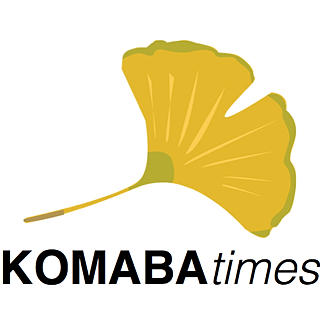Corporate Visit Part 2: Japanese Work Environment through the Eyes of an International Student
- Komaba Times
- Feb 10, 2017
- 4 min read
Updated: Oct 18, 2019
By TRUONG CONG YEN NHU
(For part 1 of the article, read it here)
I had a chance to interview Ms. Taguchi Yoko from the Human Resources Department at Fuji Heavy Industries, Ltd. It was a frank discussion on Japan’s employment situation and labor conditions with a particular focus on job hunting in Japan.
Author (YN): Good afternoon, thank you for spending time with me today.
Ms. Taguchi Yoko (TY): Nice to meet you.
YN: From 2014, FHI began to award some scholarships to students at the University of Tokyo. Is it a way to contribute to society? Why did you choose to contribute in this way?
TY: Yes, it is. First of all, we wanted to build a relationship with foreign students and make it stronger in order to know what they are interested in and what kind of thoughts they have regarding their future potentials. We haven’t had a chance to get to know foreign students like you, so we are very happy to get to know you. In addition, as our business grows, our responsibilities also become heavier because we have higher expectations from customers and the community. This practice also has multiple effects. One goal is to contribute to the society, another one is to match our policies, which is enhancing global aspects in FHI. This is the reason why we chose to award scholarships to international students, who are global talents and may bring new perspectives on to Japan.
YN: What is your opinion about the work environment in Japan? I understand one of the reasons why Japan has a relatively high suicide rate in the world is because of pressure at work. Does FHI have any solution to deal with this problem?

Ms. Taguchi Yoko, Human Resources Department, Fuji Heavy Industries, Ltd. Photo by author.
TY: I do not know about other companies, but from my experience at FHI, in the case of our company, it is reasonable. There are sources of pressure, but they are forms of positive pressure that motivate us to improve ourselves and maximize our potential. As for solutions to deal with this issue, yes we do. FHI has many policies to promote a good work environment for our employees. For example, every Wednesday and Friday, we require employees to leave the office right after working hour and spend time relaxing with family or friends. We also have “Flex time policy,” which means that employees can come a little late or leave early due to their circumstances. Everyone has 20 days of paid holiday annually, and they can also save it for the next year, if they wish. Furthermore, abiding by Japan’s law, there is an industrial physician in our office, to help our employees with their physical as well as mental health issues. We want to facilitate our workers with the best condition so that they can feel comfortable, not pressured, in their company.
YN: The next question will be about your office, the human resource department. It is now the job hunting period in Japan. As an employer, what qualities do you look for in candidates?
TY: We require candidates to be tough, and by this I don’t mean physically tough but mentally tough. There are three points we look for in a candidate: foresight, careful consideration, which means the ability to think well before acting, and lastly, the desire to achieve targets. Putting it in another way, we look for people who can find problems, think of solutions and carry it out to solve the problem.
YN: Do school rankings affect your choice?
TY: No, university name does not matter, and it will never do. What we want to see is the candidates’ real ability, not their grades or which university they come from. In recruitment, the company will base their decision on many criteria, such as personalities, abilities, experiences. The name of the university is just a part of the personality, and hence it cannot reflect everything.
YN: Finally, do you have any advice for students who are or will be making their way into the workforce?
TY: For this question, I want to share the words from FHI’s president, Mr. Yoshinaga: “Find your strengths, and try to enhance them. The sky is your limit; it is endless, and so are you. There is no limit of your potential and what you can do.” I think students should be interested in everything and be willing to challenge new things. Through those experiences, you can know your strengths and weaknesses. Some people think that “I don’t have any strong points,” however, everyone does. To find your strengths is to identify yourself. We want to advise students to differ themselves from others. Being identifiable is an advantage because it is not interesting to see the same people with the same personalities. Everybody is unique, with different backgrounds, different characteristics. That is why global resources, and a global perspectives are very important in our human resource strategy. If I were an interviewer from a company, personally, I would hire someone whom I would like to work with. Therefore, be confident, smile and show us who you are! Do not forget to show your enthusiasm in the work and in the company!
YN: Thank you for your answers. Today you have taught me a lot. I am sure that these answers will be very helpful for other students in the preparation for their future, too.
TY: You are always welcome.
Originally posted on Jan. 30, 2015





Comments